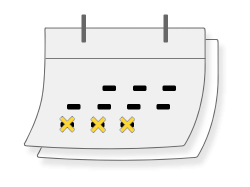It Makes You Better at Your Job
The secret to being more productive could lie in time off. An internal Ernst & Young study found that for each additional 10 hours of vacation time employees took, their year-end performance ratings improved by nearly 10%. In his book, The Happiness Advantage, author Shawn Achor describes research that shows that when the brain can think positively, productivity improves by 31% and your sales ability increases by 37%. In short, the time off really does recharge you.
It Increases Your Chances of Getting Ahead
According to the Harvard Business Review, people who take all of their vacation time have a 6.5% higher chance of getting a promotion or a raise than people who leave 11 or more days of paid time off on the table. Sure, it's a small bump—and you could argue that it's a correlation versus a causation—but it defies conventional wisdom that staying at work might mean getting ahead. It simply doesn't.
Burnout Is Real
Your company wants you to work and work hard. But most managers understand that happy employees are more productive and collaborative. And burnout is not only a very real consequence of working too much, it's a potential liability for any workplace. And right now, nearly 80% of the American workforce reports feelings of burnout, according to Jessica Rector, a Fort Worth, Texas-based consultant who advises companies on employee burnout and wellness. She says it's a slow creeper, but once burnout really sets in, it will leave you feeling paralyzed with no end in sight.
You’ve Earned It
That indulgent dessert after a day when you've crushed a workout just hits different, right? Because you've earned it. Your PTO is the same way—it's part of your paycheck. Clinical psychologist Karin Lawson put it this way: “Would you not accept your full paycheck? Would you give a little back and say 'I don't need this much?'” If your or boss doesn't seem to have much of a work-life balance, that's their issue, but you should work really hard to not make it your issue.




